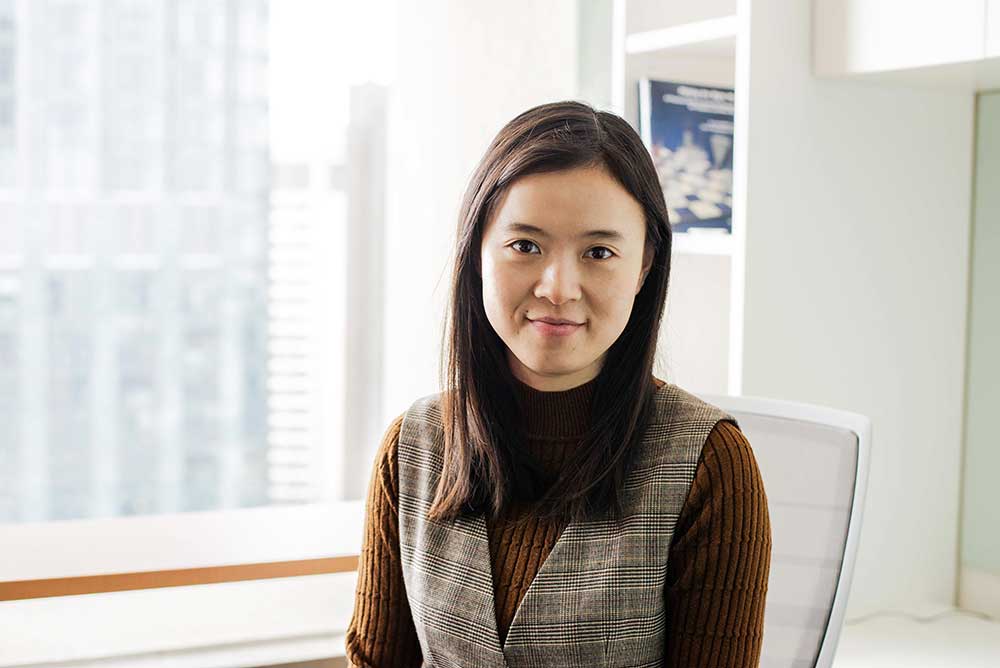Khoury News
Rose Yu brings physics into machine learning and wins Google Faculty Research Award
In February, Rose Yu received an email that was unexpected, but thrilling. It was from Google, informing her that she had been selected as a winner of the the 2019 […]

In February, Rose Yu received an email that was unexpected, but thrilling. It was from Google, informing her that she had been selected as a winner of the the 2019 Google Faculty Research Awards.
The program supports world-class technical research at academic institutions around the world, and Yu, an assistant professor in Khoury College of Computer Sciences, was elated that she had been selected. Aside from the prestige, the recognition awards her funding to sponsor a student to work on her proposed research project, which focuses on developing physics-based machine learning methods to improve simulations of road network traffic. These more efficient methods would result in better route-planning algorithms, which could potentially be used for self-driving cars and to improve applications like Google Maps.
This year’s competition attracted 917 proposals from researchers in about 50 countries and over 330 universities; only 150 proposals were granted funding.
“I am very proud that they recognized the importance of my research,” says Yu, who has a research background in machine learning and spatiotemporal modeling. “They see the value of what I propose to do, both from the research side and the real-world implementation side.”
According to Yu, current route predictions are not always accurate because they either rely on unrealistic modeling assumptions or data from regular traffic conditions. This is fine, until complex traffic scenarios arise, such as rush hour or accidents. That’s where Yu’s work comes in.
Yu’s research will train machine-learning algorithms to predict future traffic networks. The data used to train these methods will be collected from individual drivers’ phone GPS signals, street cameras, and loop sensors that lie underneath some highways and roads.
Yu’s proposal is unique in that it draws from physics as well as machine learning. She plans to build physical intuition into her models, so they can produce more reasonable traffic predictions.
For example, a non-physics-based model might auto-predict a car being driven at 140 mph on the highway, while a physically realistic model would be aware of the high unlikelihood of a car driving so fast when the speed limit is 65 mph. Yu’s models could also incorporate physical knowledge about how people maneuver in cars or make decisions at stop signs.
“Physics-guided artificial intelligence provides this convenience of generating trustworthy models,” Yu explains, referring to models that produce realistic predictions. “More and more people are working on this nowadays.”
Building physically realistic machine learning models would save researchers significant amounts of time collecting training data, the data used to train models for specific functions. If physical intuition is built in, fewer training data samples are needed because the model will automatically only predict physically realistic solutions. This technology could be game-changing in all sorts of fields.
“If you want to develop drugs, you need to understand how molecules move around,” Yu insists. “If you want to develop artificial heart pumps, you need to understand the physics of how the heart works and hemodynamics.”
Yu will begin the project with a three- or four-person team, but she sees the possibility for campus-wide collaboration. She hopes to eventually include undergraduates, more graduate students, transportation specialists, and social scientists who can offer advice on building ethical algorithms.
“It’s a recognition for Northeastern, as well,” Yu says. “We’re bringing more resources from Google to Northeastern, and we can involve students in the work.”